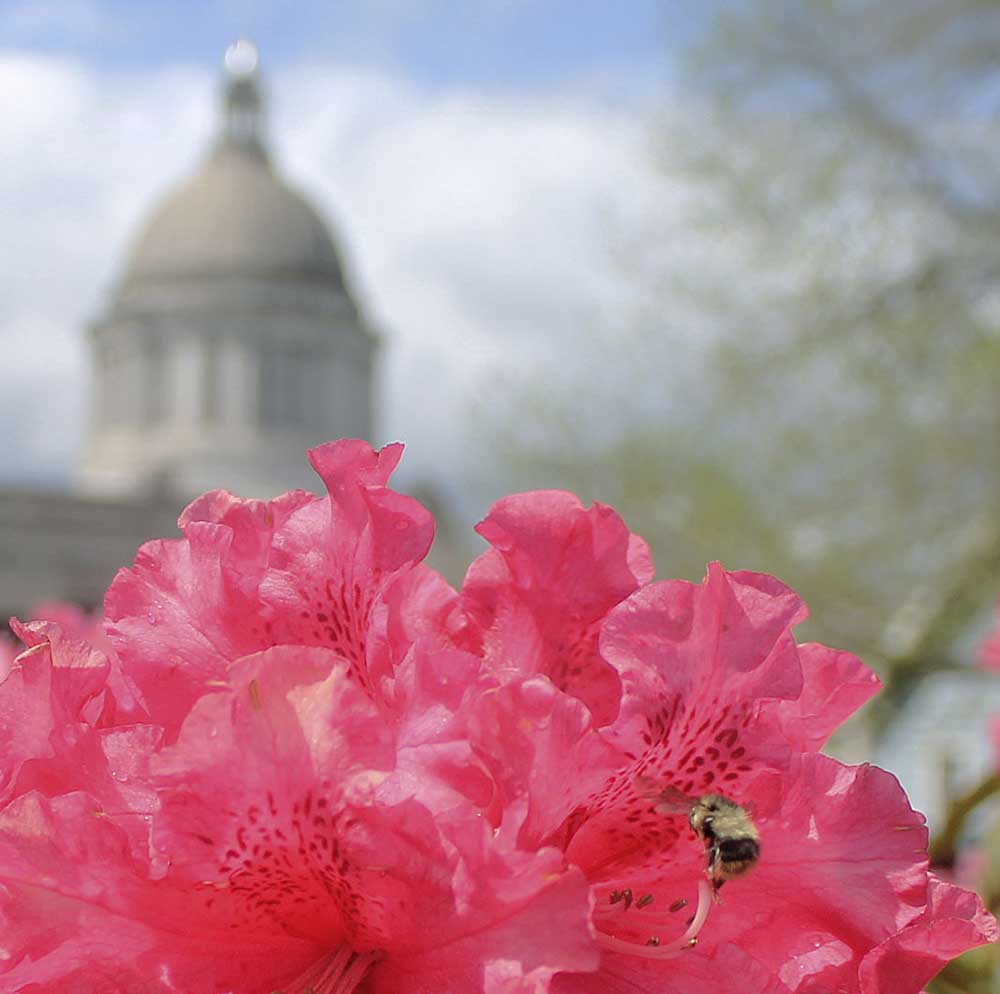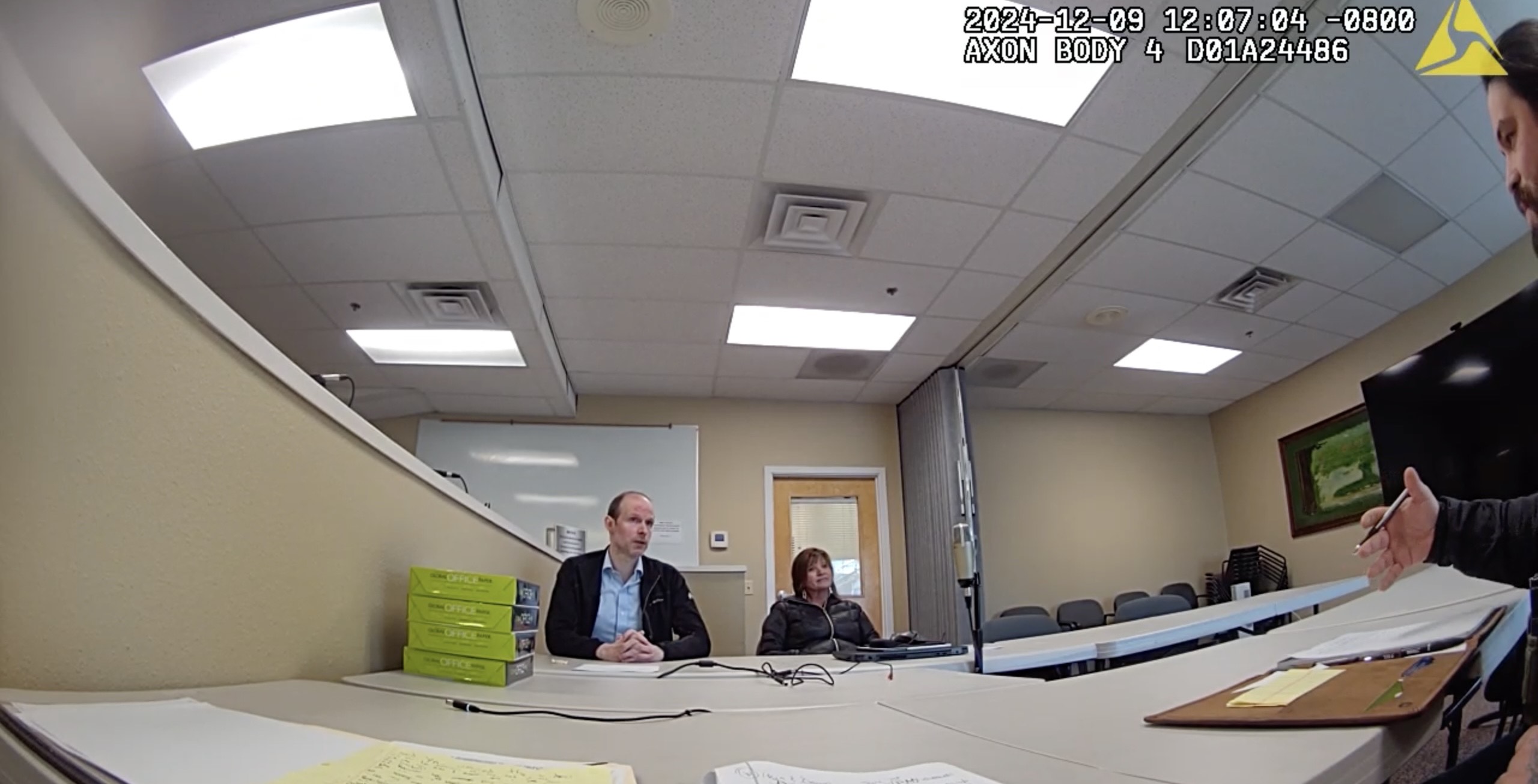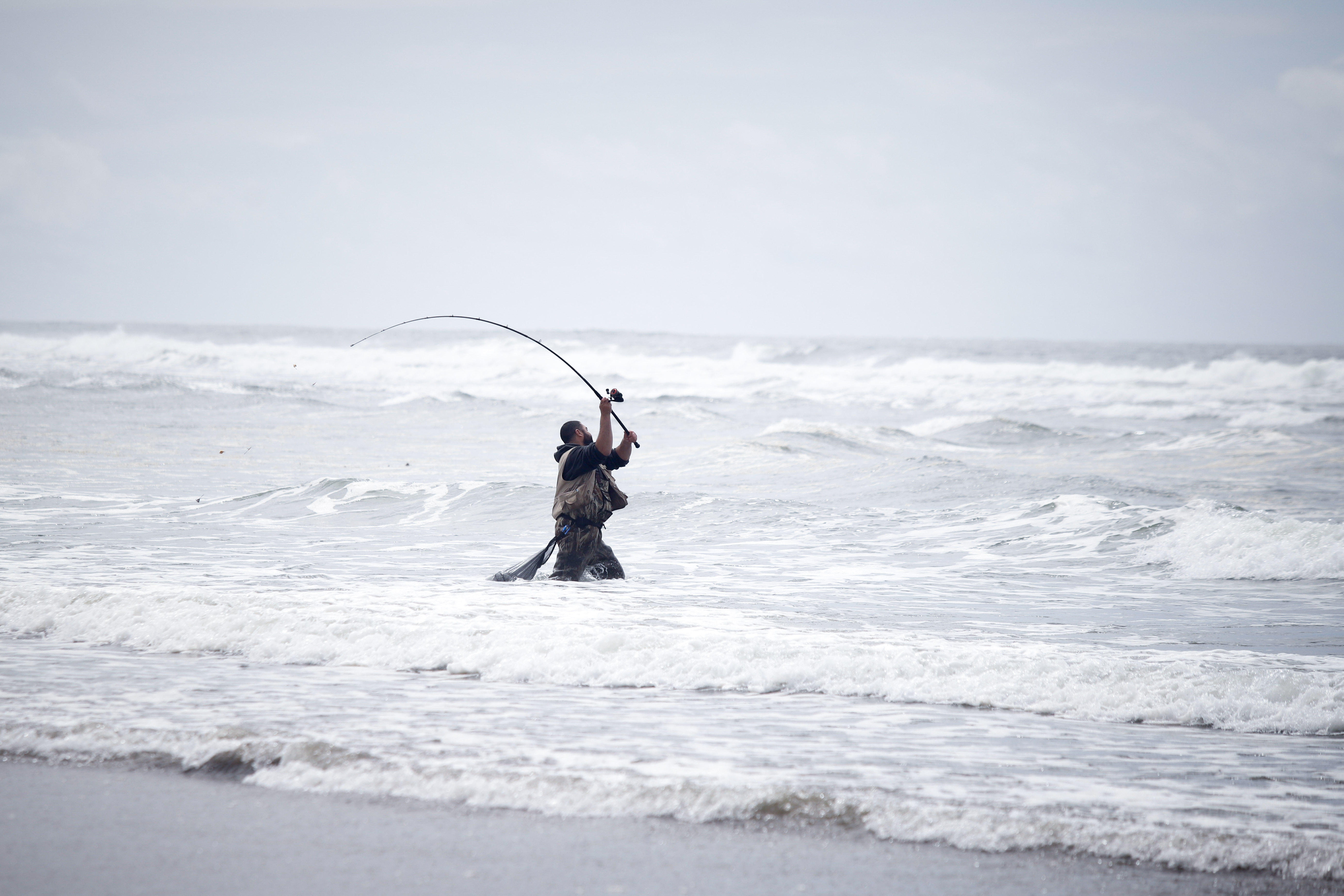Washington beekeeper: Insecticide ban won’t help pollinators
Published 12:00 pm Monday, February 26, 2024

- A bee forages on a flower on the Capitol Campus in Olympia. Washington lawmakers are considering a ban on outdoor use of neonicotinoid pesticides by homeowners.
OLYMPIC — A Senate bill that would ban Washington residents from applying neonicotinoid pesticides is a “feel-good stunt” and likely would hurt pollinators, a commercial beekeeper said Feb. 23.
Under Senate Bill 5972, outdoor use of neonicotinoids would be prohibited beginning in 2026 except on agricultural commodities or by licensed applicators.
Denied neonicotinoids, homeowners may turn to insecticides more lethal to bees, Ephrata beekeeper Tim Hiatt said in an interview. “I believe the ban will be more damaging to pollinators than not having it,” he said.
SB 5972 passed the Democratic-controlled Senate on a party-line vote and was unanimously endorsed by Democrats and Republicans on the House Agriculture and Natural Resources Committee.
Farm groups secured assurances the ban would not apply to commercial agriculture and did not testify against the bill in front of the House committee.
The committee’s top-ranking Republican, Tom Dent of Moses Lake, said he hoped the bill will defuse any push to ban neonicotinoids entirely.
“My biggest concern is losing neonics, period. That’s the big concern,” he said. “I would have preferred (the bill) wasn’t here at all.”
Hiatt, who testified against the bill on behalf of the Washington State Beekeepers Association, said he’s resigned to the bill passing the full House. “They don’t seem to see the danger I see,” he said.
Neonicotinoids were developed in the 1980s as alternatives to older types of insecticides, such as organophosates and carbamates.
Neonicotinoids generally have low toxicity to mammals, birds and fish, while organophosphates generally are the most toxic class of pesticides, and carbamates are highly toxic to fish, according to the Environmental Protection Agency.
Neonicotinoids have “sub-lethal effects” on bees, harming reproduction, foraging and colony growth, according to research published by the National Institutes of Health.
“There’s a lot of science that says neonics are bad for pollinators,” Hiatt told a Senate committee in January. “However, the formulations that would replace neonics for home use have lethal effects.”
Neonicotinoids have not been linked to any mass bee kills since at least 2007, state Department of Agriculture policy adviser Kelly McLain said.
Several states have banned non-agricultural use of neonicotinoids. Washington first lady Trudi Inslee made a rare appearance in front of a legislative committee to support SB 5972.
The sponsor, Sen. Marko Liias, D-Edmonds, said he didn’t want to interfere with agriculture’s use of neonicotinoids or the work of licensed applicators.
“What we’re really focused on is folks who don’t know how to properly apply these pesticides,” he said. “We’re really focused on that smaller group of folks that are using these in their home and gardens.”
Retired beekeeper pans ban
Most members of the state beekeepers association are hobbyists, many in urban areas. Hiatt said he disagreed with the premise that homeowners don’t follow pesticide labels.
For those who don’t, making them reach for more-lethal insecticides won’t help, he said. “This isn’t going to do anything for pollinators, really,” he said.
The strongest testimony against the pollinator-protection bill came from Hiatt and Yakima orchardist Eric Olson, who was reputed to be the state’s largest beekeeper until he retired from the field.
Neonicotinoids replaced insecticides that were worse for bees, said Olson, who began his beekeeping career in 1980.
Prohibiting non-commercial use of neonicotinoids could let invasive species spread in the Yakima Valley, he said.
”If you take this away from the homeowners, they will not be able to control those invasive species,” Olson said. “As (the insects) increase, they’re going to expand onto farmland.”
The state agriculture department initially was neutral on the bill because it wasn’t funded in Gov. Jay Inslee’s budget proposal. The department later changed its position and supports the legislation.





